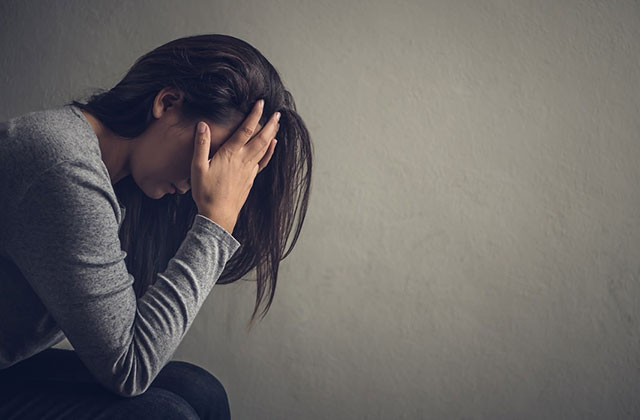In mental health circles, counselors, psychiatrists, and facilitated group specialists always talk about coping skills. Why? Not only because we need them to get through the day but also to help us function better in society. These walk in clinic Calgary help me to cope with my depression until I fully recovered.
I’ve come up with 4 must have coping skills for anyone dealing with mental health issues. They’ve worked for me and I know they have worked for many others as well. So here they are:
1. Have A Support Network
Family members and close friends would be ideal but I know that is not available for some. So, in that case, have your doctor as a support. Yes, I know, I know. They only dispense meds these days but he/she might be able to guide you to some resources that are available that you didn’t know about before.
Maybe there are support groups in your area specifically designed with you in mind? Even if there aren’t you can always go to a near by mental health clinic and look for services. Most of these places will take most types of insurance–even medi-caid. But what if it’s miles away and you just can’t get to it? Well, consider starting one of your own, Just have a small group of like-minded people simply supporting one another. And if you can find a volunteer facilitator, great! But it’s not necessary. Sometimes the best therapy is a group of people who “get you” and care about your well-being.
Some of the great things about support groups is that you can create field trips, pot- lucks, or dinners while you talk.
I am currently in a group supported by an organization called Mental Health America. It focuses on getting mental health clients back in to work that we can handle and hopefully enjoy. Without this group, this site would not be possible for me. Consider Mental Health America if they’re in a local area. Mental health clinics usually can help you.
2. Find A Way To Exercise!
I know, I know. Some of you may barely be able to get out of bed before 3 pm let alone have the energy to workout… I get it. I used to be there too. Here’s the thing though. Forget about traditional ways to exercise; the gym, running, weight training etc… Have you thought about just walking? It doesn’t even have to be a brisk walk like the gurus tell us. All you have to do is walk! Walk around the block. Walk around town and get some lunch when you wake up, if that’s you. You don’t need to be a gym rat to get those feel good chemicals going which is exactly what we must focus on first, not weight loss. Say, for example the feelings last just for 30 minutes. It’s worth it.
Why? Because the more you do it the longer the endorphins and other neurochemicals are felt throughout the body. I walk 3 days a week every morning and when I’m done I practice 15 minutes of meditation. For me, it’s the best way to start off my day. This leads me to the 3rd coping skill.
3. Mindfulness
The man called The Buddha taught that the source of all suffering was in our attempt to escape the present moment and our direct experience of it. Do you think this is true? There was a study done recently on mindfulness meditation. Apparently, it is the first of its kind that shows rapid alterations in gene expression within subjects associated with mindfulness meditation.
According to Dr. Bruce Lipton gene activity changes daily. In his research it illustrates that by persistent change of perception of your mind CAN alter the activity of your genes creating over 30,000 variations from each gene. Wild stuff, huh!
So, what does that mean for us? For the mentally ill, our present moment is subjected to a lot of suffering much of the time. You might ask, ” how can this help me as a coping skill?” Simple. By being present and feeling what you are experiencing in each moment would be ideal but what I’ve discovered is that people with mental health issues like bipolar disorder, schizophrenia, or generalized anxiety disorder etc… can only manage the pain for so long until we need to escape the present. I escape on bad days when symptoms flair. I feel it for a few minutes until I’ve calmed down a bit then I continue with what I’m doin’. Or, I simply give up the present moment lie down and go to sleep. Escape is necessary for us I’ve come to conclude. Too much time in our own head is not a good thing–for anyone.
When you feel something coming on, try to feel it. All of it. Breathe. Then release. If releasing is impossible, give up the moment and rest. Don’t fight yourself any longer. Be your best friend… even with the mental disorder. It’s the only way you will find peace in the present moment like The Buddha describes in his teachings.
4. Develop More Hobbies Than Goals
What do I mean by this? Well, a goal has an end point. Once you’ve reached it it’s over. Don’t get me wrong I’m not against having goals. They work for some people but I’m not one of them. I think I’ve tried every method of goal setting out there and they just didn’t work for me.
Now, take my dad for example. He’s goal-oriented. He had a goal to build a real two-seated helicopter. Took him over 5 years to do it but he did it. He now has a ready to fly flying machine in my parents backyard.
The down-side to goals are once you’re finished, you’re off looking for the next goal and the next and the next. My father is now restless because his goal is finished and he doesn’t know what to do next!
So, try something different in a way. Develop hobbies that have no end. I’m talking about those hobbies that can only make you better and better with age and time. See where it takes you. Life is funny that way. You can start off doing one thing and having it end up evolving into something totally different–but right for you.
Coping skills for mental health will always be individualized so experiment. Try a few or all of these tips and see what happens. In no time at all you could be doing things you never thought possible for you…
Having a mental illness myself, I’ve learned there are natural approaches to improve my health while on medication. They’re simple, easy, and they work!
Article Source: http://EzineArticles.com/8334958



